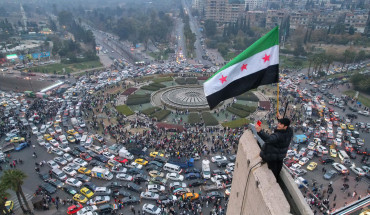A top aide to Supreme Leader Ali Khamenei said today that Iran will not accept European powers’ proposal to supplement the 2015 nuclear deal with new provisions on the country’s missile program and regional ambitions. “If they say they accept the JCPOA but we need to negotiate over regional issues and the missile program, this means setting conditions on the JCPOA and is not acceptable for us under any circumstances,” Ali Akbar Velayati told reporters on the sideline of his meeting with France’s special envoy on Syrian affairs. “JCPOA has no conditions and should continue in line with what has been agreed upon between Iran and 5+1,” he added, referring to the United States, Britain, France, China, Russia and Germany. Velayati said Iran will not negotiate over its presence and actions in the region. “The Europeans and Americans have no rights to express views about our presence or lack of presence in the region.” He argued that Iran’s military presence in Syria and Iraq are on based on requests from the governments of the two countries. Velayati further noted that the Islamic Republic will not accept to extend the duration of the nuclear agreement.
Comment: In August, France’s President Emmanuel Macron suggested that the Iran agreement could be “supplemented” to address some of the loopholes in the agreement. Macron’s proposal came after U.S. Secretary of State Rex Tillerson traveled to Europe to seek the support of Washington’s allies to toughen restrictions on Iran’s nuclear program and other non-nuclear concerns such as Tehran’s missile activities. One key U.S. demand from European allies is to pressure Tehran to extend the limits on Iran’s nuclear enrichment that expire in a decade.
But Iranian leaders have rejected Macron’s suggestion and ruled out negotiations over the country’s controversial ballistic missile tests and Iranian nuclear program after 2025. “Under no circumstances, the Islamic Republic of Iran will hold talks over the JCPOA,” Velayad had said in September. “This negotiation has taken place once and Iran held talks with the 5+1 countries for a long time and reached an agreement. No doubts from any countries regarding this accord is acceptable and we will not accept any such proposals.”
The chairman of Iranian Parliament's Committee on National Security and Foreign Policy, Alaeddin Boroujerdi, had echoed a similar view. “No negotiations to change the JCPOA will take place and America is obligated to implement this international document as one of its signatories,” he stressed.
Last Friday, President Donald Trump decertified the Iran nuclear deal and imposed new sanctions on the I.R.G.C. It is now up to Congress to decide whether to reinstate pre-2015 sanctions and cancel the deal, do nothing and refer the case back to Trump, or pass a new legislation that sets new requirements for Iran to adhere to. Such new requirements would include a more strict inspection of Iran’s nuclear and military sites, limits on Iran’s ballistic missile programs, and end the deal’s sunset provisions that allow Iran to resume nuclear enrichment after a decade.
The Middle East Institute (MEI) is an independent, non-partisan, non-for-profit, educational organization. It does not engage in advocacy and its scholars’ opinions are their own. MEI welcomes financial donations, but retains sole editorial control over its work and its publications reflect only the authors’ views. For a listing of MEI donors, please click here.













